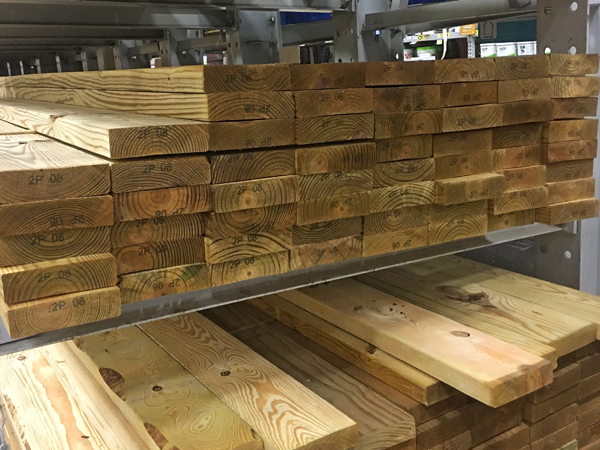
What is the difference between hard and soft wood? Is one really much stronger than the other? Does one float and the other sink? I gather mahogany is very porous, so is it really so strong? I know it is a hard wood.
Lee Grindinger: Although these terms seem to imply something about the hardness of wood they do not. Hardwoods are deciduous trees; trees that drop their leaves each year. Softwoods are coniferous trees, trees that hold onto their needles throughout the year. A notable exception is the Larch which is a deciduous conifer but is classified as a softwood. There are deciduous woods such as basswood that are softer than many of the firs and pines, so the terms “hardwood” and “softwood” are deceptive.
Ellis Walentine: The glib answer is that hard wood is hard and soft wood is soft. The thoughtful answer is that there are no absolute generalities regarding strength. The strongest softwoods are stronger than the weakest hardwoods. Softwoods technically come from coniferous trees and hardwoods from deciduous trees. Relative strength, which may be expressed in several ways (e.g., fiber stress in bending, shear stress, modulus of elasticity), varies greatly from species to species, but almost all hardwoods are stronger by most measures than the strongest softwoods. Porosity isn’t a significant factor in strength.
Michael Dresdner: Hardwood comes from deciduous trees (trees that drop their leaves in the fall) and softwood comes from coniferous (evergreen) trees. Some softwoods are harder than some hardwoods, so the name is misleading. One wordsmith told me that the term comes from the fact that deciduous trees typically have a seed with a hard covering, while conifers usually don’t, but this seems unlikely to me.
As for floating, any wood with a specific gravity above 1.0 will sink, while any with a specific gravity below 1.0 will float. That’s because water has a specific gravity of 1.0 (by definition.) Offhand, I know of no softwoods and only two hardwoods that sink unless they are fully waterlogged.





